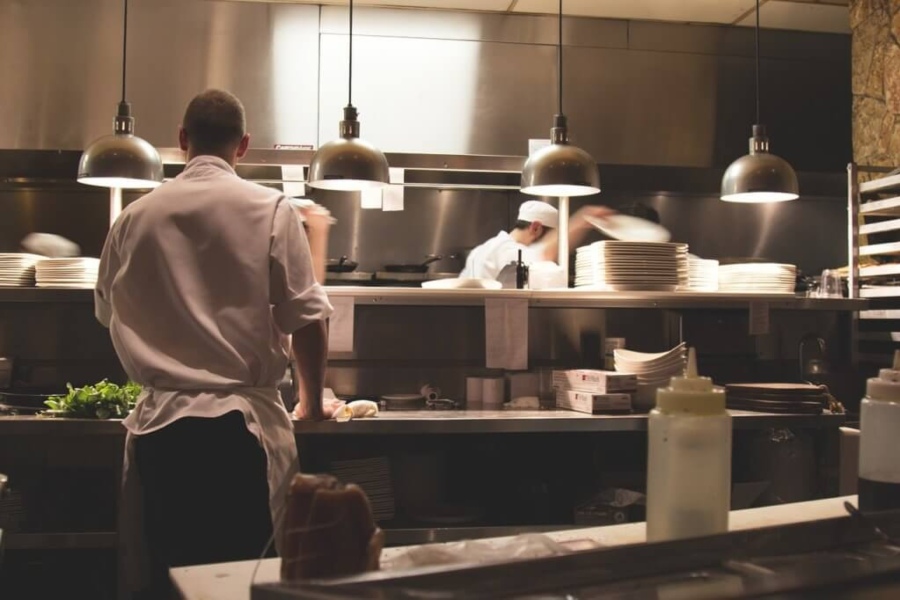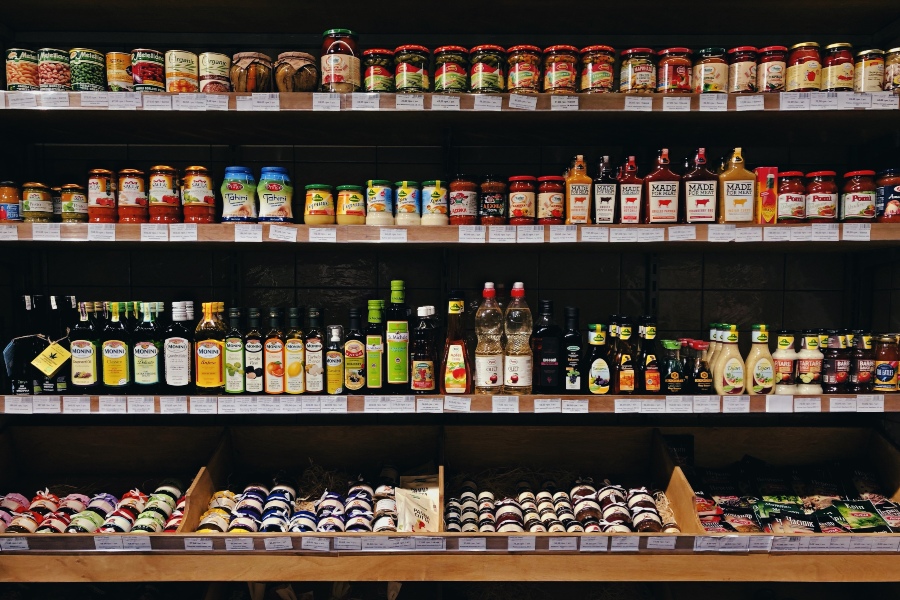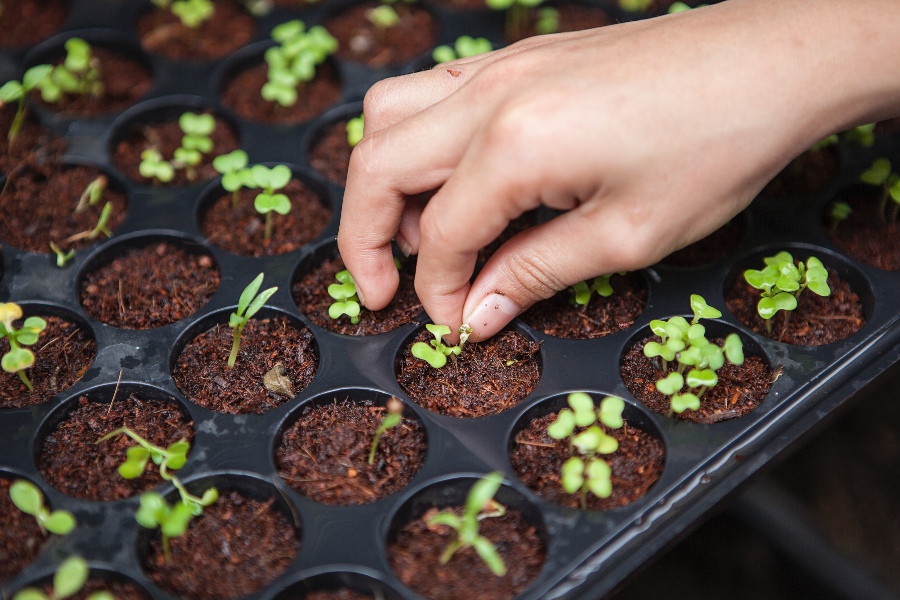“Be prepared!” isn’t just a Boy Scouts motto, it is wise advice for any food business, no matter how big or small, as we head towards an uncertain Brexit. The terms under which the UK exits the European Union is yet to be decided, so the food industry and its businesses need to be prepared, whether we leave with or without a deal.
Generally speaking, the terms of the deal will outline how and what changes, though we can guess at some ramifications. For a no deal scenario, we are looking at what we lose in terms of current agreements and regulations with the EU and the knock-on effect for food businesses.
Government Advice On Brexit – What You Need To Consider
For those within the food and drink sector, preparing for an Brexit means looking at all aspects of your business. The government has been preparing guidance for food businesses, but it is a lot to work through. Here, we will break down what you most need to know and where to find further details, so you can ensure your food business is ready for a deal or no deal Brexit.
Within each of these topics, we will explore how a deal or no deal will change the preparations you will need to make as a food business.
Employing EU Citizens As Staff
Both an agreed deal and no deal will directly impact EU citizens working in the UK, not just in terms of rights but in the appeal of working in the UK.

Many of the employees in food businesses across commercial kitchens, restaurants, wait staff and more come from the EU. Both an agreed deal and no deal will directly impact EU citizens working in the UK, not just in terms of rights but in the appeal of working in the UK.
Although as a food business, you aren’t responsible for making sure that your employees are able to work in the UK( it is down to each person to do this), you will be required to confirm their legal right to work. If you suddenly find yourself without staff who can work in the UK, you could be forced into paying substantial recruitment fees for staff turnover, an additional cost that you need to be prepared for.
Current EU Staff Need To Apply To EU Settlement Scheme
If you have team members wishing to stay in the UK, you can find out what you need to know in the EU Settlement Scheme: employer toolkit. The EU Settlement Scheme is the new way in which a person can secure their right to live and work in the UK if they are from the EU, EEA or are Swiss. Simply put, the only people who don’t need to apply for this are those who are British or Irish citizens or those with indefinite leave to remain or enter.
European Right To Work & Immigration Will Change From January 1st 2021
Current rights to work won’t change until 30 June 2021 with a deal and 31 December 2020 if there is no deal. These deadlines might seem far off but eligible employees should apply as soon as possible to secure their status.
This also means that the right to work for those arriving before 1 January 2021 will remain as they are until then with or without a deal. Those who wish to remain for three months or more following that date will need to apply for temporary leave to remain or resettlement.
Depending on the terms of a new deal, immigration will change. New applications will be possible and could be similar to those shown in the government’s whitepaper, the future skills-based immigration system white paper, which sets out the plans to introduce a new single immigration system from 1 January 2021.
If you have employees or prospective staff who need help understanding their options, you should point them to the Rights Problem Solving Service. This includes how professional qualifications will (or won’t) be recognised after Brexit, which can affect their employability and immigration options.
If you’re concerned about how you will staff your restaurant or food business after Brexit, take a look at this article on staffing considerations in a post Brexit world.
Imports and Exports: Goods, Products & Ingredient Supplies
A deal will outline how and if import/export rules will change. In a no deal scenario, the border treatment of goods will be based on the UK as a third party country (not an EU member), changing requirements on everything from labels to ingredients.

Food businesses come in all shapes, sizes and services. You might be a food truck, delivery company or be creating a product for sale in markets and stores. Depending on how involved you are in the import or export industry will affect how much action you will need to take.
Regardless, in most cases food businesses rely on international supplies one way or another. Changes to what can be transported, when and where will change in the long term with a no deal Brexit or a deal.
Food shortages from a no deal Brexit are not unexpected. Many ingredients are imported for food businesses, whether they are supermarkets, caterers or otherwise. Even if you aren’t buying from overseas directly, supply chains will be affected by changes in the EU’s relationship with the UK, both on imports and exports, as well as transporting. This might make some ingredients more difficult or more expensive to get in.
Changes If You Are Selling Products In The UK And/Or Europe.
Food businesses that are selling products tend to be those selling jars or canned foods, perhaps in recipes of their own creation such as sauces and flavourings, though not exclusively. While you might not think of these items as manufactured goods, they are. The transit of these items might not have changed on a practical level, but there are legal and logistical ways in which both a deal and no deal scenario will affect their transport and sale across the border.
Applying For An EU Trading Number For Imports & Exports
In a no deal scenario, you will need to get a unique number to import or export goods under new rules for a non-EU third party country, which the UK will become after Brexit. This won’t affect goods coming to or from Ireland or Northern Ireland. This may or may not form part of the deal, we will have to wait and see what is agreed to know for sure.
If you are directly importing or exporting goods yourself, such as ingredients, then from April 12th 2019, you will need to apply for a UK Economic Operator Registration and Identification (EORI) number. If you don’t have this number set up in time for Brexit then you could face serious delays or issues with your goods when transporting.
Changes To Import VAT & Customs Duty At The Border
Related to the EORI, since rules will change around goods crossing the border, any VAT registered food business will also need to know how and when they will deal with import VAT. Terms of a deal on Brexit will lay out how import VAT is affected, with the government aiming to minimise changes.
If the UK leaves the EU without a deal then you will need to account for import VAT on your VAT return, instead of paying when or soon after the goods arrive at the border. If you are not VAT registered, you will need to pay upfront at the time of import.
There will be temporary rates of customs duty on imports after Brexit, which if there is no deal will mean you pay different rates depending on the goods themselves. Unlisted goods will have a zero rate duty, but you will need to check which items are included. Tariffs will change based on the type of goods, across raw ingredients, produce, livestock etc.
Regulations And Standards For Products & Goods
Regulations and standards after Brexit will affect any food business that is placing or selling products on the UK or EU market. This will mostly affect food businesses that are creating products such as jams, sauces or pickled foods to be sold in the UK or EU; this wouldn’t be as relevant to food trucks or takeaway delivery kitchens for example. If you think this might affect you, read all these guidance documents on manufactured goods for market to learn more.
Even if there is a no deal scenario and you are looking to sell goods in the EU, as long as your goods meet EU regulatory requirements, they will still be valid for sale for a limited time. The EU may or may not allow those items to remain on sale after that, and a Brexit deal would outline which additional requirements (if any) British exporters would need to fulfil to make their items available for sale.
Energy And Climate
Transporting goods after Brexit, through the use of vehicles with set loads, fuels and other green factors, will change depending on the deal. The Government’s best advice right now is to stay updated, since we can’t know the outcome until a deal or no deal is reached.
Using Personal Data As A Food Business
A Brexit deal will outline what the EU has agreed on data capturing and retention for UK based businesses. In a no deal scenario, changes are unclear, so you must keep those you are data collecting from informed about what data of theirs you are keeping.

You need to be as aware of how personal data collection will change after Brexit, as you were with GDPR changes within the last year. Unfortunately, as with GDPR, the changes can feel confusing. Any changes from Brexit won’t change how you collect data from UK users, only those in the EU.
If you are collecting customer information, in particular if you are selling to those in Europe, then you need to be aware that the rules by which you receive, share and store customer information will change, depending on the UK rules from the deal. This won’t change all at once. The best rule to abide by is to keep your European partners up to date with any changes you make and you’ll be fine.
Personal data, if you aren’t aware, is any information that ‘can be used to identify a living individual, including their name, their physical or IP address, or HR functions such as staff working hours and payroll details’. For a food business, this might be website visitor data or customer details retained from orders.
How To Be Prepared On Personal Data After Brexit
There are 6 steps which the Information Commissioner’s Office (ICO) has set out as guidance for food businesses to prepare for Brexit. They are:
- Comply with GDPR rules.
- Review how your data flows into the UK from the EU/EEA.
- Monitor how your data flows out of the UK and document how this occurs.
- Be aware of how data protection regimes will apply to your businesses in the food sector.
- Amend your privacy policy based on changes from Brexit.
- Ensure your internal team is aware of any changes you are making.
There may not be an immediate change to personal data if there is a deal on Brexit, but there will be a time limit for how long the same flow of information is allowed without you carrying out the above. If there is no deal, the EU will be able to set and change any rules for how EU personal data is dealt with by the EU, with minimal changes hoped for by the UK Government.
European and Domestic Funding: Labels, Patents & Trademarks
Cost and availability of seeds, plants and livestock could become limited in a deal or no deal scenario, changing the availability of products from UK farmers.

Not the most obvious food sector relevant aspect of Brexit, changes to ‘funding for areas include research and higher education, social and structural development and sector-specific funds’. Unless you are working in farming or bringing in seeds and plants for agriculture, such as vegetables, then you won’t have to deal with this directly.
In both deal and no deal scenarios, the EU may choose to change regulations on which foods, seeds, raw products, etc.can leave the EU and in what amounts. Since farmers may get livestock, crops or plants from the EU to grow in the UK, any change in what they can import could affect their supplies for sale in the UK.
You may also have to change food labels in line with new amendments that will come at an additional cost to your food business, such as what ingredients must be listed, including which additives or preservatives.
The farming sector has specific ways it needs to prepare for Brexit, since the EU plant passport scheme will have controls changed at the border. A new process will be put in place both with and without a deal on Brexit. This will likely involve treating the UK goods as third-party imports meaning that rules around health checks for plants crossing the border will change. If this increases time and cost at the border, your supply chain for ingredients that your food business relies on will also change.
Food And Drink Labelling Rules Will Change
As soon as October 2019, we will see changes to how organic foods, among other food and drink items are labelled. This is because the agreed rules on labels are prone to their own updates and changes, as any system is, but also because the UK may no longer be following the same agreed rules and restrictions as those in the EU. If you are using imported goods or looking to export food goods, then you will need to be aware of the changes to labelling when they are agreed or risk having unsellable stock or items that get stopped at the border.
Intellectual Property
Your patent, copyright or trademark may no longer be recognised in the EU, and EU businesses rights may not be covered in the UK. A deal will stipulate which rights remain. In a no deal scenario, you’ll need to seek the rights holder’s consent.

Intellectual Property (IP) within the food sector is relatively new. Patents, Trademarks and Copyrights all come under IP. Where you might have your IP secured now, you won’t necessarily have it protected in a no deal or new deal post-Brexit world. There are some Brexit IP facts available now, but most will come with time.
A patent or trademark for your food businesses can include a recipe or food process, for example, you might copyright a cookbook or set of ingredients. All these can be an important part of your business and marketing strategy. Don’t let yourself get caught out by being unaware of how your IP is changing.
A deal would outline how IP is retained or not within the EU, if there is no deal there will be no immediate change but you ‘may need the right holder’s consent to export intellectual property-protected goods’. Remember that it is not only your IP that changes with Brexit but also the IP of those with the EU and how it is recognised in the UK.
Being Prepared Means Considering All Exit Options
Most businesses are in the dark about how Brexit will really affect them. You can be prepared by considering the worst case scenario, both for a deal or no deal Brexit and by following the Government guidance which acts as a measuring rod for what the deal aims are. Make sure to look in depth at every part of your business, including those that affect how the food sector runs as a whole.